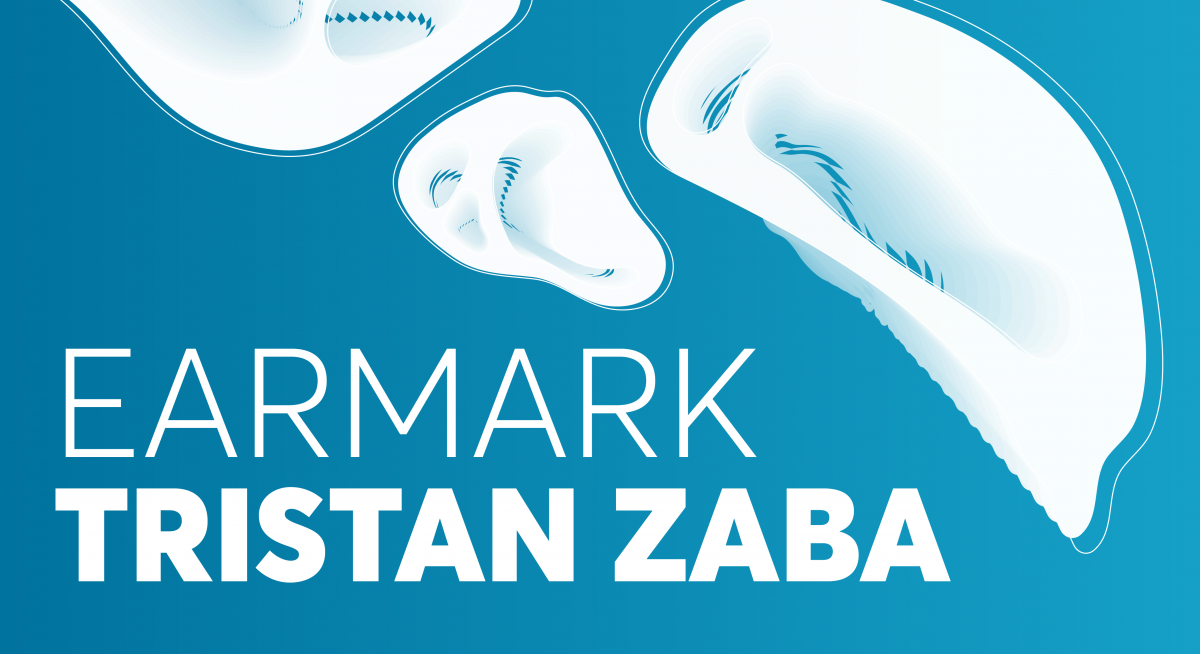This instalment of Earmark features Associate Composer Tristan Zaba who talks about his fondness for Brian Eno’s music, moments and mentorship that change your relationship to art, and the time it takes for a musical idea to ferment.
CMC: How have you been adapting to the pandemic? Are you still collaborating, writing, editing, listening, researching? What has been your form of artistic engagement?
Tristan Zaba: I’ve honestly been doing well through the pandemic! While I did have a number of projects go up in smoke at the beginning, I’ve been feeling creatively active pretty much throughout. The past nine months for me have seen the release of a new singer-songwriter album I recorded in my apartment, the premiere of my piece Dream Streams for virtually interactive piano trio, and the resumption of a larger scale chamber project that I’d written myself into a corner on two years ago. I’ve also got a number of other projects on the go and the horizon that I never could have anticipated, so I feel very lucky!
CMC: What got you excited about music at a young age?
TZ: Two things that really got me excited about music at a young age were seeing Wagner’s Ring Cycle live at the COC when I was 10 and hearing Tom Petty’s Wildflowers album when I was much younger. It’s a weird combo, but I think both continue to influence me.
CMC: What is an important music concert/event you attended?
TZ: After finishing my undergrad at the University of Manitoba, I was in Edinburgh for the Fringe Festival following a hiking trip through the highlands with my sister. Spur of the moment we bought tickets to see Amanda Palmer in a small hall workshopping material for her upcoming There Will Be No Intermission album and tour. It was one of the most affecting shows I have ever seen, and it entirely changed how I think about art.
CMC: What have you been listening to lately? Feel free to provide a link to streaming audio/video. Does any of this make its way into your music?
TZ: I’ve been listening to Brian Eno’s 2016 album The Ship a lot recently, but to be honest I’ve listened to it pretty consistently since it was released. I listen to a lot of Eno, but for some reason I often come back to that one and Discreet Music. That’s in amongst a pretty wide variety of stuff I’m constantly exploring across a variety of genres though. Eno’s work has influenced me overtly in a few pieces, but I think most of the music I hear also influences my compositional process on a subconscious level.
CMC: What is a significant insight that a mentor shared with you that has guided your practice?
TZ: When I was attending the Orford Festival in my undergrad (to my knowledge Orford’s first winter workshop) Simon Bertrand, the mentor for the program, shared with me his belief that there is no such thing as bad musical material, only bad pieces. It was extremely heartening to meet another composer who shared and verbalized for me my own belief that the context of musical materials is substantially more important than the materials themselves when creating effective art. Important lessons will sometimes reveal things you had never thought of, but other times they just give coherence to things you already knew but could never fully express.
CMC: What is the most important lesson you would share with your younger self in regards to your music?
TZ: I’d tell myself to hold the course. I’ve always felt that on some level my vision of what I want to express through my work has remained consistent. Looking back on the years I spent studying, I learned much more about the how of musical expression than the why. That being said, there were a number of times when I second-guessed myself. By “holding the course” I largely mean that I’d affirm for myself that I know what I want to say artistically and that it is significant.
CMC: Tell me about a project/work of yours that you are particularly proud of.
TZ: I’m really proud of my song cycle Études for a Dying Race, which was premiered in its final form in 2019 at the Source Song Festival. I composed it for my partner, McKenzie Warriner, to sing and she originally premiered it in 2018. Before that I’d been working on it in various forms since 2015 though. Of all my pieces it’s taken the longest to ferment, but at this point I feel it’s exactly what it needs to be.
CMC: What is the first thing you plan to do when we can gather safely again?
TZ: I plan to go to shows and hang out with people after those shows! It’s not just seeing live music that I miss, but the whole community surrounding it. Before the pandemic I was going to see up to five shows a week and it was a shock when everything shut down. Also, going to the movies. I miss that a lot. I’ve been to the drive-in in Hamilton quite a bit, but that’s sort of its own thing.
Earmark is our ongoing feature that profiles new CMC Associate Composers. Check the CMC Ontario site regularly for new instalments.

